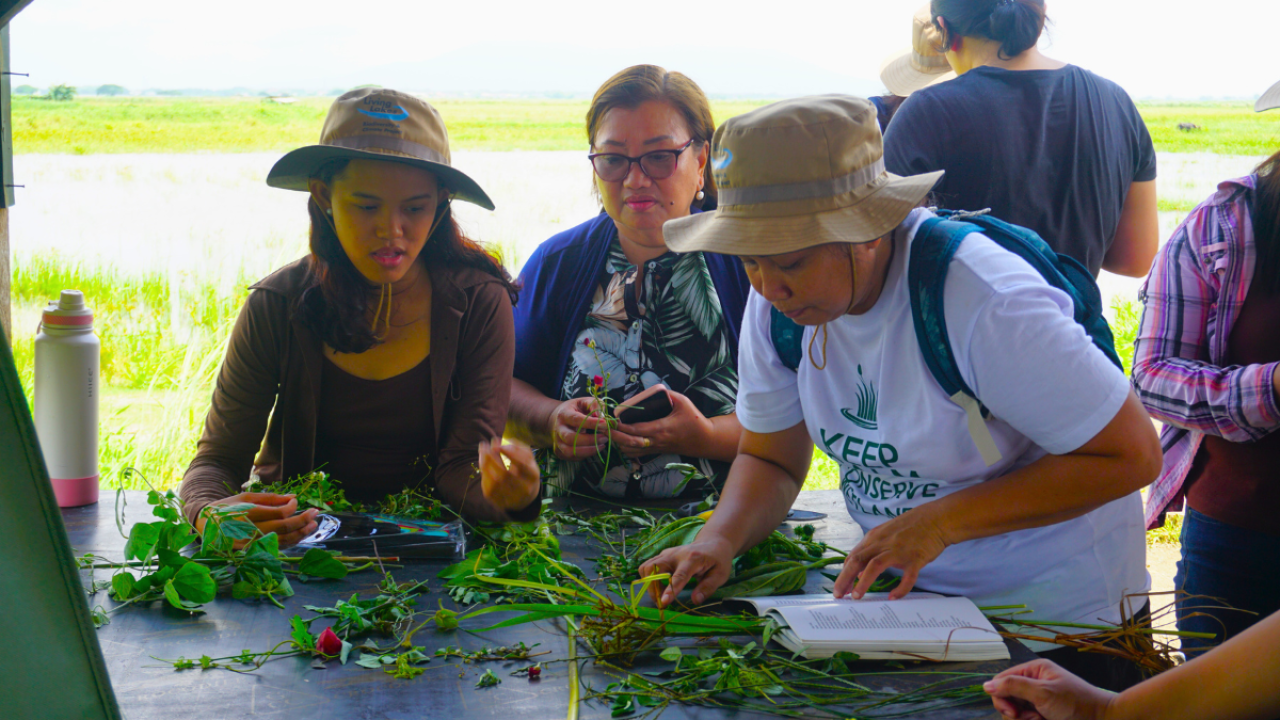A Trainee’s Send-Off to a Journey in Conservation:
For Renz, a new trainee at the Society for the Conservation of Philippine Wetlands (SCPW) under the Living Lakes Biodiversity and Climate Project (LLBCP), the first day of fieldwork came sooner than expected.
As dawn broke over the Paligui Wetlands in Candaba, Pampanga, the rising sun lit up a naturally flooded lake shimmering with life. For someone who grew up by the seaside, this was a new and breathtaking landscape. Bird calls echoed across the floodplain, dragonflies darted through the air, and the hum of insects filled the morning. It was not just a start to his internship – it was his very first Wetlands BioBlitz.
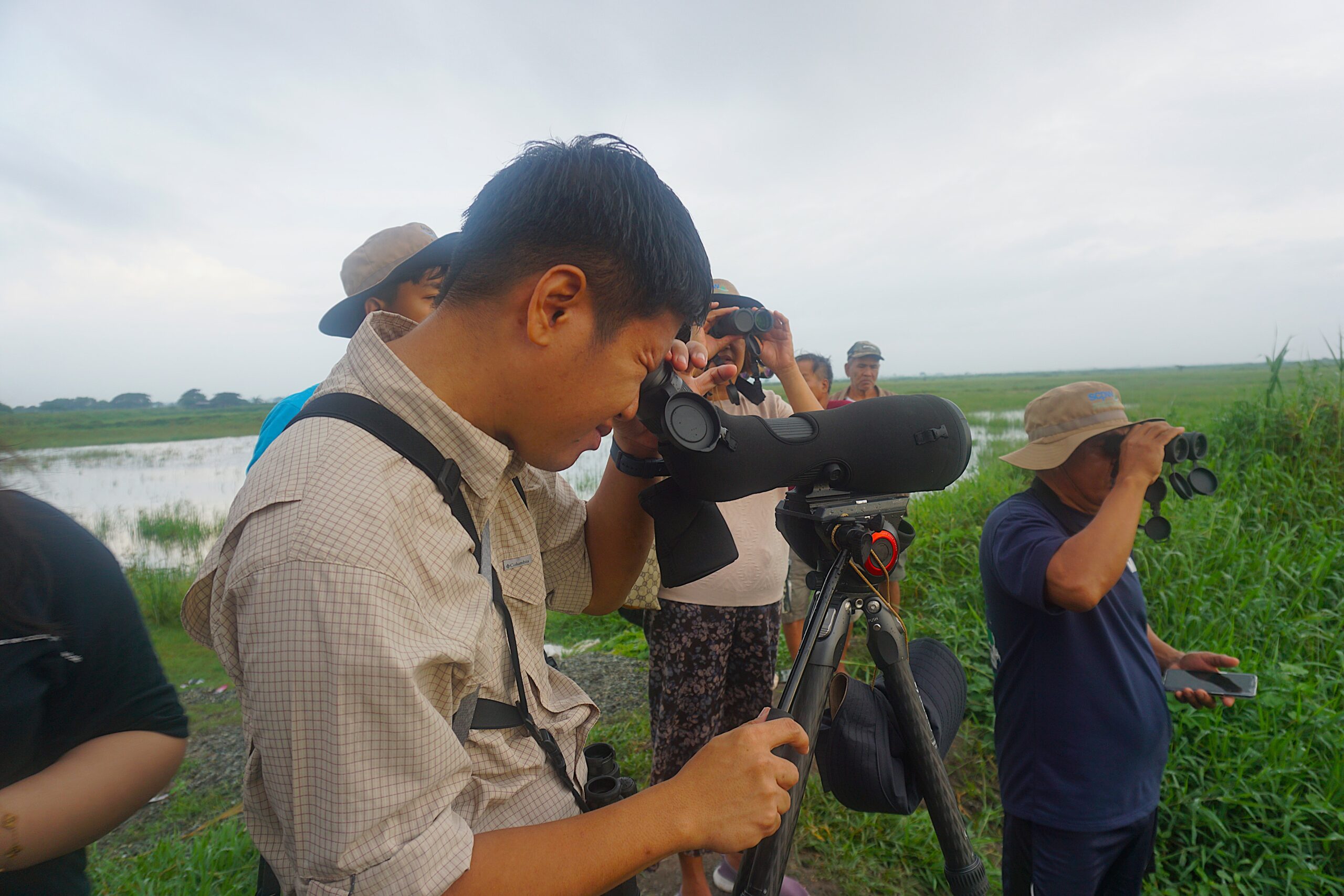
Blitzing into the Field:
Unlike classroom lectures or lab sessions, the Wetlands BioBlitz (WeBB) was science in real time. More than a simple species survey, the activity is designed to capture the full story of wetlands. “Bio” means life, “blitz” means doing something quickly and intensively – and in this context, it means documenting as much biodiversity and ecological data as possible within 24 hours.
But SCPW has refined the approach. Alongside recording plant, insect, and bird species, participants also:
-
Assessed water quality
-
Studied hydrology
-
Measured ecosystem services using the Rapid Assessment of Wetland Ecosystem Services (RAWES)
-
Engaged with local knowledge holders
In short, the BioBlitz was not just a scientific exercise – it was citizen science in action, empowering people to discover, record, and protect the richness of the wetlands.
📖 SCPW’s full guide to conducting a Wetlands BioBlitz can be found here.
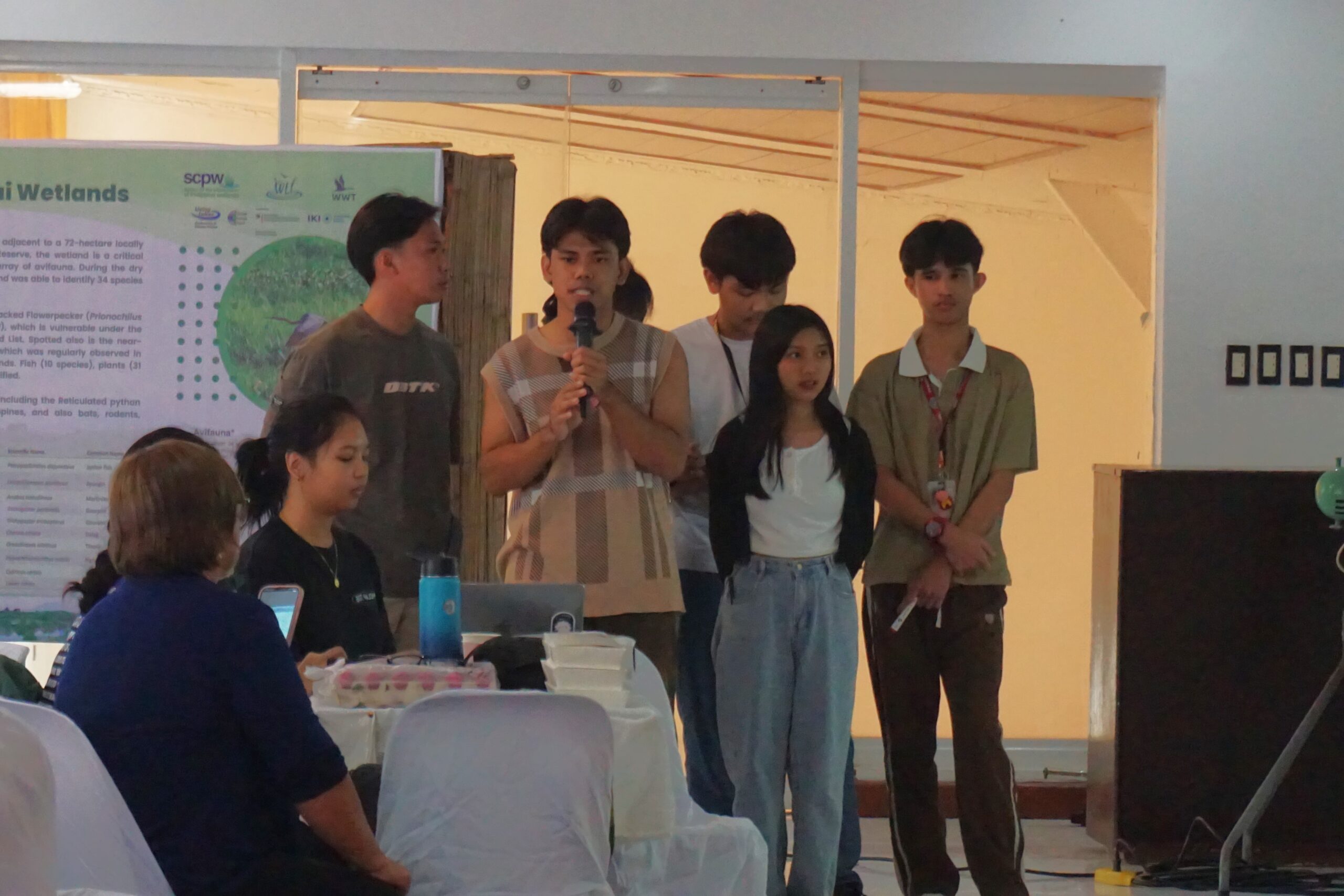
When the Unheard Voices Speak the Loudest:
For Renz, the most powerful lesson came not from instruments or field guides, but from the voices of farmers.
They shared lived experiences: how native fish populations have dwindled with the arrival of invasive species, how flooding patterns have shifted over time, and how the wetlands once provided abundantly for their families.
One farmer reflected:
“I’ve been watching the rice paddies since I was a child, but this is the first time I’ve seen it from a different perspective. My mind is now filled with deeper knowledge, something I never had before”.
These insights gave context to the scientific data. The wetlands were not just ecosystems – they were livelihoods, memory, and identity. For Renz, it became clear: wetland conservation is not only about habitats, but about people.
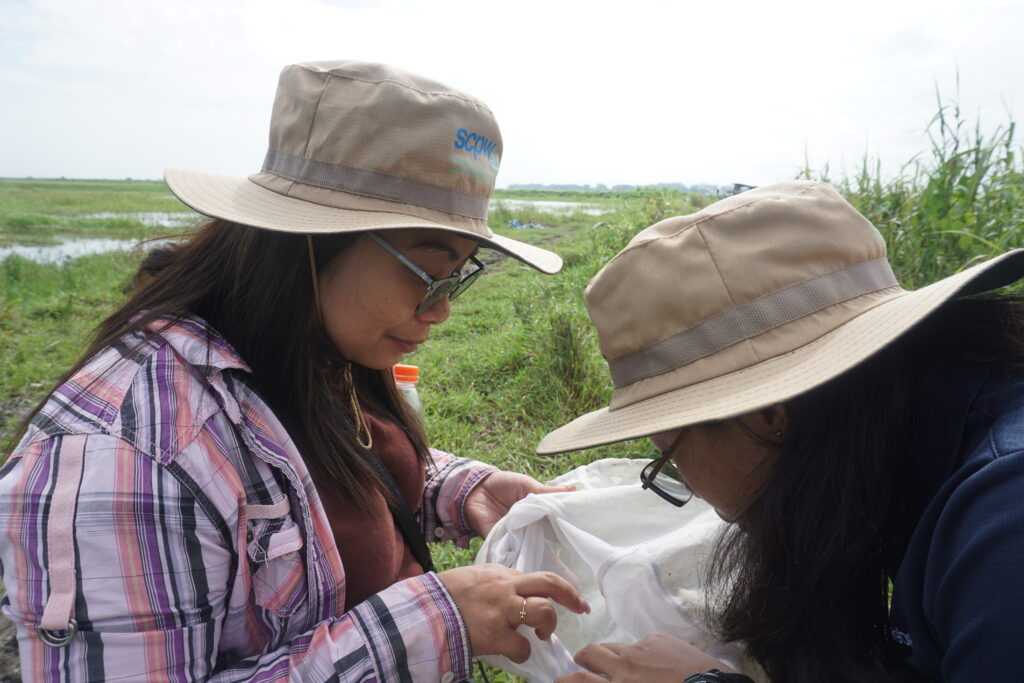
In the Field We Trust:
The fieldwork was both challenging and inspiring. Renz trudged through thick mud, jotted down hurried notes, and stumbled over species names he had only seen in books. Yet every moment of exhaustion was balanced by awe: spotting migratory birds for the first time, documenting insects and plants, testing water quality, and connecting ecological data to human experience.
“As an Environmental Science graduate, this is not new to me” he admitted. “What is new is realizing there is a much bigger world out there. It can be overwhelming, but the people you are working with and the familiarity you’ve built keep your feet on track”.
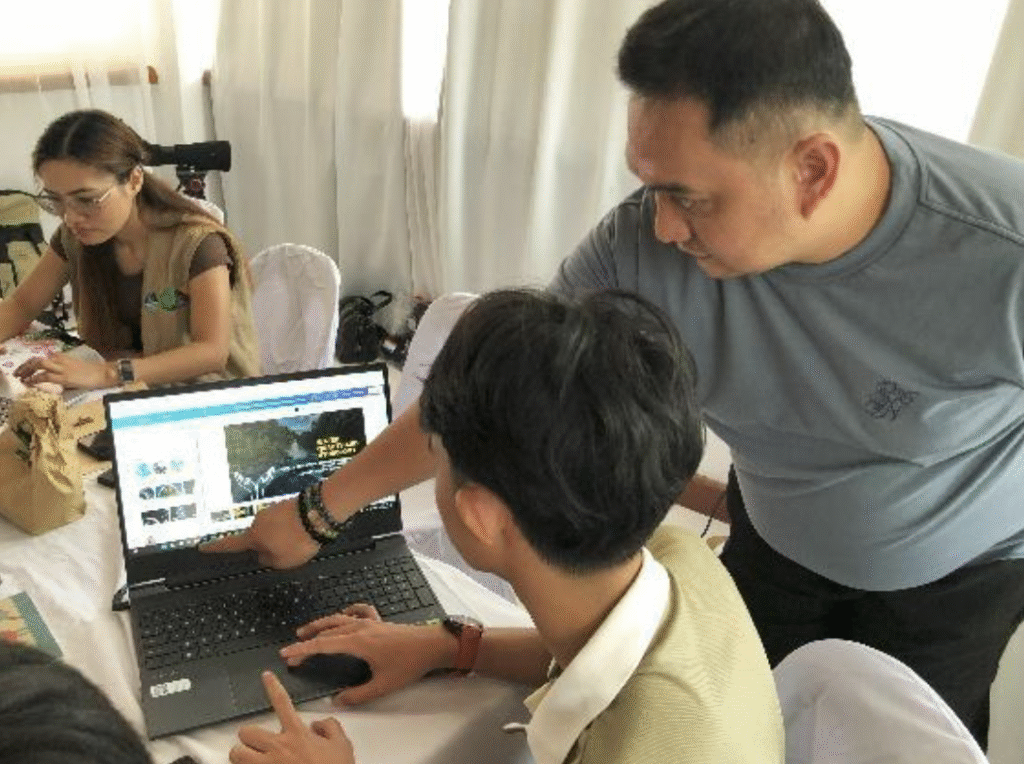
For the Environment, the People, and the Future:
What began as technical training became something deeper. The BioBlitz taught Renz that conservation is not simply about counting species – it is about building collective responsibility. Wetlands are lifelines: for biodiversity, for climate resilience, and for the communities that depend on them. Protecting them requires science, but also trust, participation, and shared commitment.
This is precisely what the Living Lakes Biodiversity and Climate Project (LLBCP) strives to achieve. Implemented in 10 countries, including the Philippines, and funded by Germany’s Federal Ministry for the Environment through the International Climate Initiative (IKI), LLBCP strengthens local conservation efforts through capacity-building and “frontrunner” initiatives. In the Philippines, SCPW works hand-in-hand with farmers, students, and local governments to restore wetlands and safeguard biodiversity.
For Renz, the BioBlitz was not an ending, but a beginning. It marked the start of a journey in which science and community meet – where every observation matters, and where what is counted today may determine what survives tomorrow.

